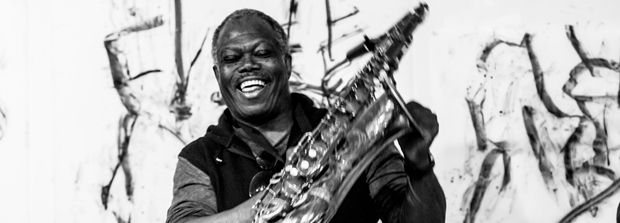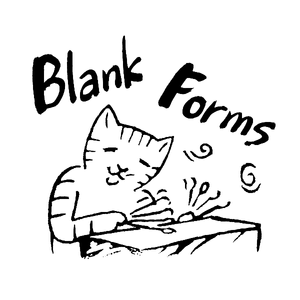Blank Forms Second Annual Benefit Honoring Joe McPhee
Up to Free for members

Few artists are as deserving of the label “creative musician” as is Joe McPhee. A multi-instrumentalist, composer, poet, conceptualist, and theoretician best known for his contributions to free jazz, McPhee continues—at an exuberant 78 years young—to seek new articulations of music’s rich universal language through improvisation. Based in Poughkeepsie since childhood, McPhee has deliberately remained distant enough from downtown New York to resist the constrictions of the dominant US scene. His odyssey has been exemplary in its singularity, as he continues to forge transatlantic connections between a homegrown black American music and the European free improv scene. Deeply political both in the explicit, semantic content of his music and in his compassionate approach to collaborative subjectivity, McPhee is also defined by humility and grace,qualities that permeate the timbres of his irresistibly honest instrumental tones, produced via saxophone, pocket trumpet, valve trombone, PVC pipe didgeridoo, alien clarinet, electronics, voice, or everything-but-the-kitchen-sink use of quotidian objects. We at Blank Forms, having worked with and enjoyed McPhee’s presence in a variety of contexts over the past several years, are delighted to honor him at our second annual benefit, and to celebrate an artist whose legacy merits a place in jazz’s pantheon.
A first-generation American born to Bahamian parents, McPhee began learning to play the trumpet from his father at eight years old and developed his skills in the mid-1960s, after being drafted to the Army, where he joined the 3rd Infantry Division Band. After the Army, in 1968, inspired by the music of Albert Ayler, McPhee taught himself the saxophone, appeared as a sideman on Clifford Thornton’s Freedom and Unity, and proceeded to cut two records of his own in dedication to “the black experience on the planet earth”: 1969’s live, out free jazz record Underground Railroad and 1971’s landmark Nation Time. A classic of the genre, Nation Time—its title, lifted from Amiri Baraka—is a tour de force avant-funk workout, featuring infectious call-and-response vocals (“What time is it!?” “Nation time!”) and fiery post-Coltrane grooves that remain in the pocket while reaching for a terrestrial inner cosmos. In a musical milieu often considered difficult, Nation Time, with its passionate ass-shaking accessibility, stands out as a testament to the emancipatory potential of free jazz.
Perhaps because of his isolation in upstate New York, McPhee’s music has never been released by a major label; yet its lyrical beauty is so remarkable that not one, but two independent record labels—CjR and hatHUT—were founded in the 1970s expressly to disseminate his output. Both labels have since functioned as platforms for his partnership which began prior to Nation Time, with synthesizer player John Snyder, whose ARP 2600 contributions paved the way for the use of electronics within jazz improvisation. In the ’80s, McPhee befriended fellow upstate resident Pauline Oliveros, whose theory of “deep listening” was a formative influence, yielding several collaborations between the two, furthering McPhee’s explorations of electronics and extended technique within free improv. During this period, he also read Edward de Bono’s book Lateral Thinking: A Textbook of Creativity, inspiring his concept of “Po Music”: “a Positive, Possible, Poetic Hypothesis” involving a “process of provocation to move from one fixed set of ideas in an attempt to discover new ones.”
With over 100 albums to his name, McPhee has performed with the likes of Peter Brötzmann, Evan Parker, Andrew Cyrille, Rashied Ali, and Steve Lacy, but his restless globetrotting search for lateral entanglement demonstrates no preference for establishment improvisers. As his profile has risen, he has maintained collaborative relationships with Raymond Boni, Graham Lambkin, Susan Alcorn, and many more, while welcoming off-the-cuff engagements with non-professionals whenever the spirits will it. To mark this special occasion, McPhee promises “NATION TIME FOR REAL THIS TIME (in the Error of Trump). Not a redo but a reexamination.”




